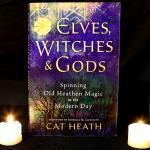What do you call the next major holy day on the Wheel of the Year, coming up on August 1st?
Many call it Lammas, from the Anglo-Saxon “hlaef-mass” or “loaf mass.” In Stations of the Sun (1996), Ronald Hutton cites a document from 921 CE that called Lammas “the feast of first fruits.” Hutton goes on to say “all that is certain is that across Britain Lammas remained an extremely important date throughout the Middle Ages, for holding of fairs, payment of rents, election of local officials, and opening of common lands.”
In The Lore of Ireland (2006) Dáithí Ó hÓgáin describes how the Romans changed a harvest festival in Lyon from a celebration of Lugh to a celebration of the Roman Emperor Augustus (which is where we get the name for the month of August in most European languages). He says “the celebration of such a festival has long been current in Ireland, being called in Irish ‘Lughnasadh’ and thus providing a direct link between the mythology of the Continental Celts and the insular tradition of Ireland.”
The first Pagan book I ever read – The Power of the Witch (1989) by Laurie Cabot – called it Lammas, so that’s what I called it. The second (or close to it) book I read – Wicca: A Guide For The Solitary Practitioner (1988) by Scott Cunningham – called it Lughnasadh.
I knew early on I needed to make a clean break with Christianity, so calling it Lughnasadh just seemed like a better choice.
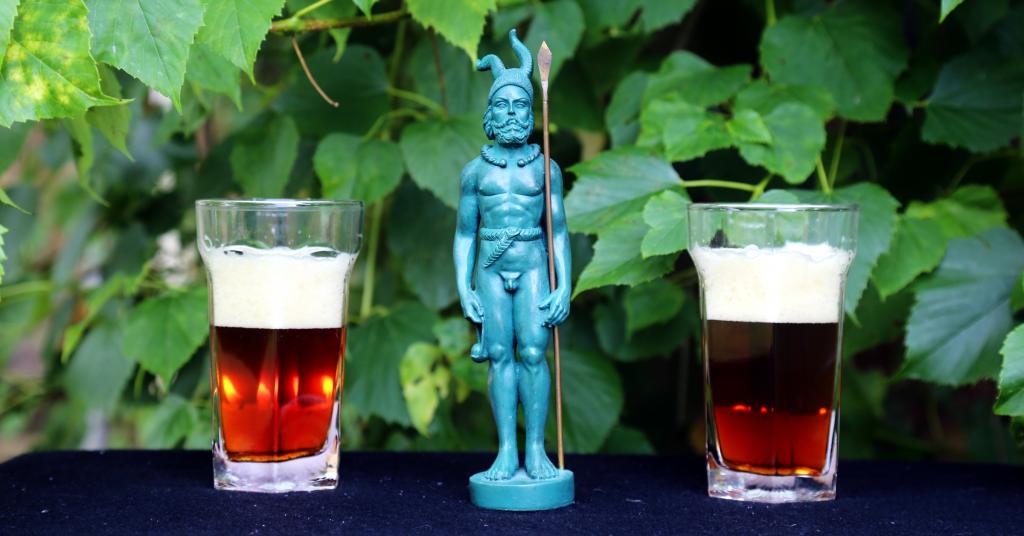
This is not a post about the “right” name for this holy day or even the “best” name. If you follow a tradition that doesn’t use the Wheel of the Year, you may not see the need to celebrate it under any name. My only recommendation is that whatever you call it, choose mindfully.
Rather, this is my story of Lughnasadh, and my story with Lugh.
Lugh: Master of All Arts
When I was first starting out on this Pagan path, I felt like I needed a patron deity. So do a lot of other Pagans, even though the idea of personal patronage wasn’t particularly common in ancient times (most patrons were patrons of cities, nations, or tribes). No one jumped out at me, so I did what I still advise others to do – I picked Someone.
I picked Lugh.
It was an easy choice. I had already discovered an affinity for Druidry, so I wanted Someone associated with a Celtic culture. And I loved the story of Lugh’s first appearance at the court at Tara. When told He could not enter because He did not possess a skill or an art that the Tuatha De Danann did not already have, Lugh said “ah, but do you have any one person who has all these skills?”
I’m no Master of All Arts, but I have many interests, and so Lugh seemed like a good fit. And He was, for a while.
But then Cernunnos reintroduced Himself in my life, and that was that.
I never forgot Lugh, and I led several Lughnasadh rituals – including one that introduced me to the Morrigan. But over time, Lughnasadh stopped being an annual celebration of Lugh and became “the holiday we celebrate on August 1st.”
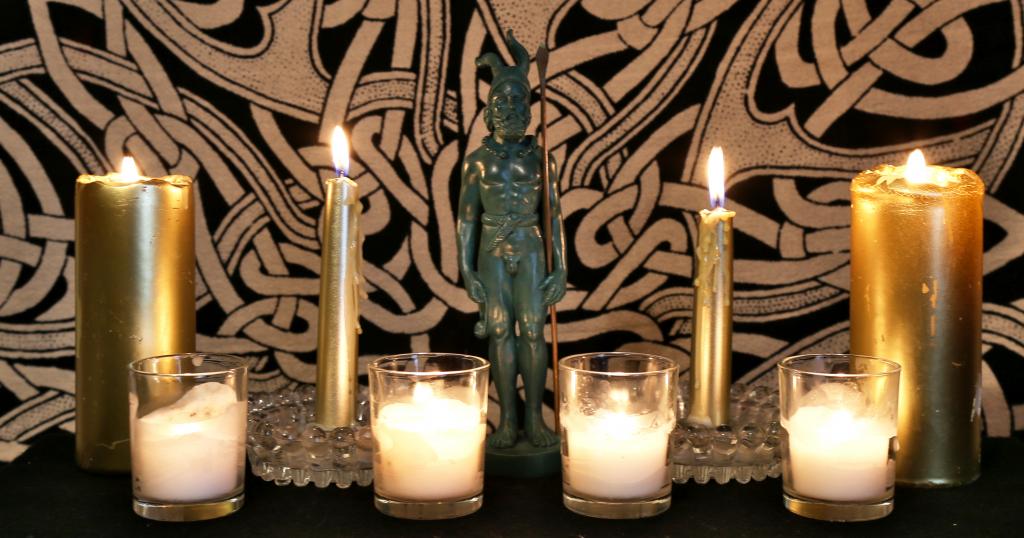
Cernunnos, Herakles, and Hermes
In August 2013 Denton CUUPS celebrated our first Cernunnos Ritual. It was amazing. We would go on to do it again at the DFW Pagan Pride Day and at the OBOD East Coast Gathering, where we asked Damh the Bard to make an offering rather than to sing for the ritual. Singers love to sing, but sometimes they like to do other things as well. We had a small choir sing his song “Antlered Crown and Standing Stone” as part of the ritual.
In 2014 one of our members who worships the Greek Gods wanted to do a devotional ritual to Herakles. It was rather different, but it went very well. We kept the Greek theme in 2015 with a devotional ritual to Hermes.
But when we held our planning meeting for 2016, I heard a familiar voice say “I want my festival back.”
A Return to Lughnasadh
And so we did. 2016 was a harvest feast in celebration of Lugh – something that might still be commonplace if the Emperor Augustus and the Christian religion hadn’t inserted themselves into Celtic culture. 2017 was a more generic harvest festival.
In 2018 and 2019 we honored the Gaulish deity Lugus, who may be Lugh under another name, or who may be a separate God. The 2019 ritual included one of the most beautiful sacrifices I’ve ever seen. Heather Campbell spent countless hours on a piece of needlework, then burned it as a sacrifice to Lugus.
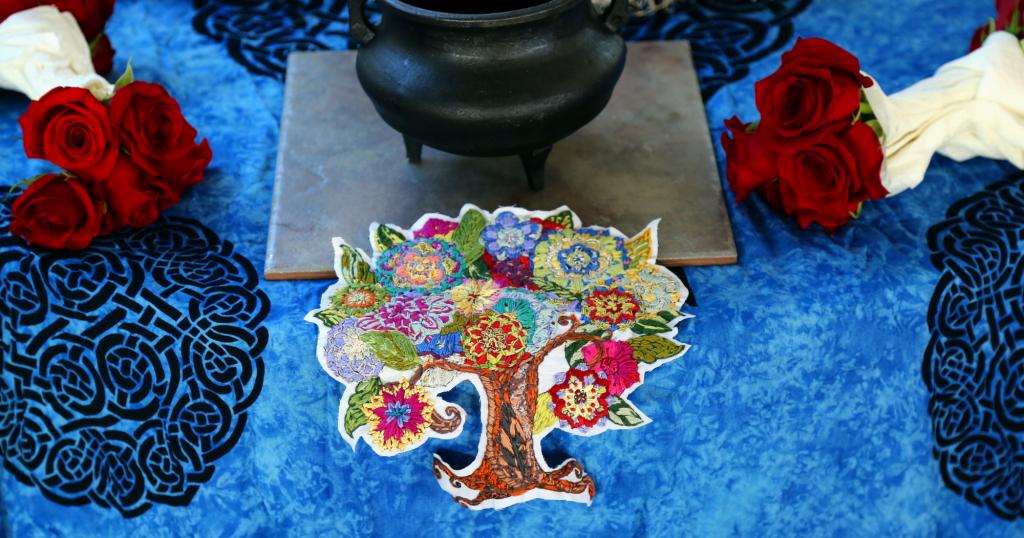
Last year, in the middle of the pandemic, we presented a video ritual that honored Lugh and His foster mother Tailtiu, and asked for Their blessings as we do what must be done.
As I write this, the group plans for this year’s Lughnasadh are not yet settled. I’ll be traveling on August 1 – something I’m very happy to be doing again. But where ever I am, I will take a moment to say a prayer and make an offering to Lugh, and to Tailtiu.
Because for me, it’s not Lughnasadh without Lugh.
The importance of liturgical calendars
As I’ve discussed on numerous occasions, I grew up in a small fundamentalist Baptist church. There was no such thing as a liturgical calendar. They observed Christmas and Easter and that was it. A liturgical calendar was “a Catholic thing” and therefore wrong and to be avoided – never mind the fact that most Protestants use them. When someone asked the preacher why he didn’t preach about Epiphany or Pentecost or even Palm Sunday, he said “I’m going to preach what the Lord lays on my heart.”
In other words, “nobody’s going to tell me what to do.”
Certainly that was his right. But in doing so, he cut himself, his church and its members – including me – off from centuries of Christian tradition. I always felt like I was missing out by not observing Advent and Lent and such… although my core problems with evangelical fundamentalism were far deeper than the lack of a liturgical calendar.
Liturgical calendars provide a framework for worship and for contemplation. They provide special days so we aren’t always bogged down in routines that can be laborious even if they are necessary and helpful. And they remind us of the cyclical nature of time.
In 2018 I wrote Building Your Own Liturgical Calendar to encourage Pagans and polytheists to observe any liturgical calendars you may have, and to build your own where you don’t.
For me, Lughnasadh – and not Lammas – is a critical part of that calendar.
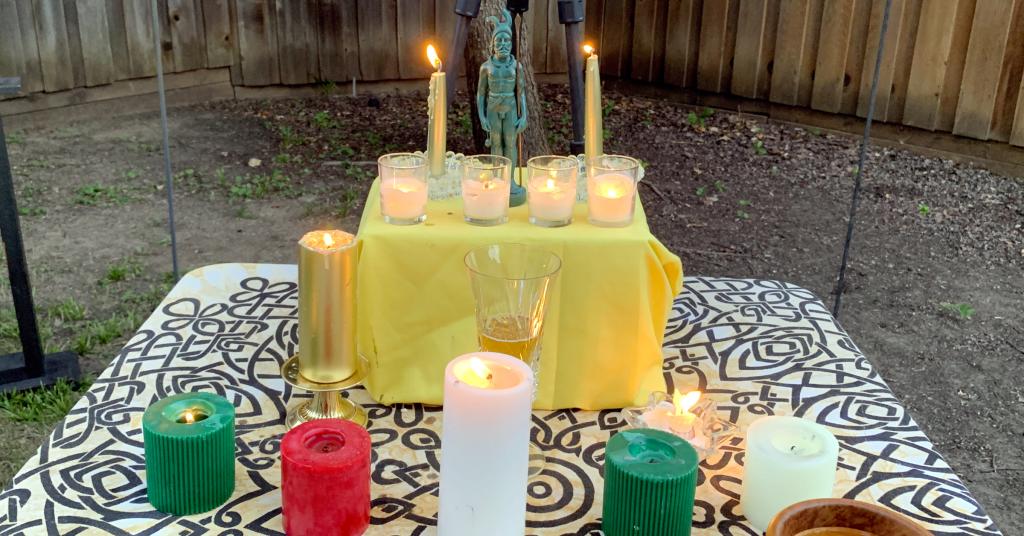
Lughnasadh forever
If you’re part of an eclectic Pagan group, compromises and tradeoffs have to be made. In ancient Greece, the Herakleia was celebrated around August 1st. Our member who worshipped the Greek Gods had as much right to ask the group to celebrate his holy day as I had to ask them to celebrate mine. He moved away from Denton a while back, but if someone else wants to celebrate the Herakleia at August 1st some year, I’ll support them any way I can.
If I ever find myself in the Bay Area around this time of year and Jason Mankey invites me to celebrate Lammas with his Wiccan coven, I will happily join in.
But while Lugh never became my patron deity, the relationship I began all those years ago never ended. Rather, it’s strengthened over the years. There is a statue of Lugh on my altar and I call His name in prayer every night.
And so while I may celebrate other holy days and honor other Gods, on or around August 1st I will always conduct a special ritual for Lugh, even if it’s just me and Him.
Because for me, it’s not Lughnasadh without Lugh.



